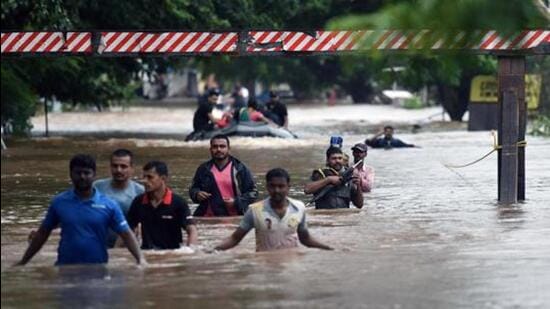The impact of our planet’s addiction to fossil fuels is hurting
Tackling the climate crisis needs all G20 nations to step up, make bold commitments, and get on with implementing them. Making the promise is only the first step. Getting the promised job done, as quickly as possible, is crucial if we are to keep warming to 1.5°C and avoid even worse, and worsening, loss and damage from the climate crisis.
Wherever you look, countries are suffering – from the savage heat in India, fires in the United States (US), floods in Bangladesh, typhoons in Japan and droughts in Africa. Collectively we know we have a problem. What’s more we have a solution and a road map under the United Nations (UN) to tackle this crisis: What’s missing is political will from G20 leaders.

Humans emit nearly 60 billion tonnes of greenhouse gases, annually. In 2015, the world committed to cutting those to halt global temperature rises at 1.5°C. Getting on track means halving emissions this decade. It’s a big ask of 200 nations and nearly eight billion people. But we don’t need to focus on all 200; we can scale down to 20.
The G20 group of nations accounts for 80% of world GDP, three quarters of global trade, and nearly two-thirds of the planet’s population. It comprises 19 nations and the European Union. It accounts for 75% of global greenhouse gas emissions. Which means these 20 economies hold the key to success or failure of the Paris Agreement.
Our new report groups nations on where they stand on climate action. For India, a G20 member, we list it under the header “stallers” – countries that have not submitted new or updated emissions pledges.
No-one in India needs to be told climate impacts are becoming more intense and dangerous. Far less does anyone need to hear that from someone born, brought up and living in the United Kingdom (UK).
But India is not just on the frontline of rising temperatures and extreme weather. With a population of 1.4 billion people, the world’s fastest-growing economy, and 70% of power generated using coal, India is a major emitter. Although emissions per head of population are much lower than the North American and European nations, India is the third biggest annual emitter after China and the US.
India’s government clearly gets this. Prime Minister Narendra Modi was the only world leader to make a significant new promise at the last UN climate summit, COP26. He committed India to net zero emissions by 2070 – in line with the Paris Agreement – and half of all power from renewables by 2030. On top of this, Mumbai seeks to be net zero by 2050, and almost all new capacity added to India’s power grid in the last year was renewables.
There is financial support too, in recognition that India is still a developing economy and any target set is conditional on climate finance. Before COP26, the UK agreed a package worth $1.2 billion; more recently, Germany pledged “at least” €10 billion through a partnership for green and sustainable development. Certainly more is also needed.
But there is not yet a target – no official commitment. India has not yet formalised Prime Minister Modi’s Glasgow promise into a “nationally determined contribution” – a pledge to the United Nations for what India will achieve by 2030. Nor is there a long-term strategy for achieving net zero; another requirement in the UN climate treaty.
Tackling the climate crisis needs all G20 nations to step up, make bold commitments, and get on with implementing them. Most of the G20 nations are categorised in our report as “implementation needed”. Making the promise is only the first step. Getting the promised job done, as quickly as possible, is crucial if we are to keep warming to 1.5°C and avoid even worse, and worsening, loss and damage from climate change.
India is yet to deliver that first step – the NDC itself. It will require bold action both to maintain the scale of renewables deployment, and to phase down and ultimately bring to an end India’s reliance on coal. But that shift will clean the air Indians breathe, provide greater resilience and security, and fuel India’s economic growth.
With India 7% of annual global emissions, it is also a crucial part of the job ahead for the G20 – a grouping India will chair next year – in the six months left before COP27.
Gareth Redmond-King is the International lead at Energy & Climate Intelligence Unit.
The views expressed are personal



